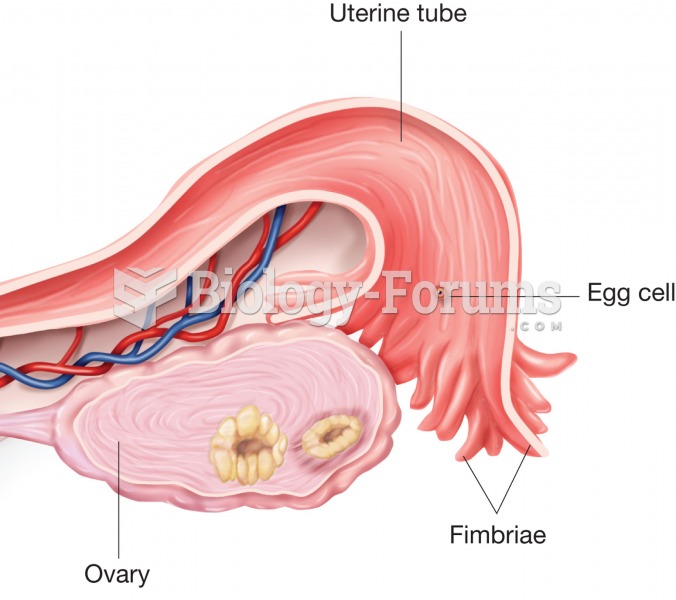|
|
|
If all the neurons in the human body were lined up, they would stretch more than 600 miles.
Eat fiber! A diet high in fiber can help lower cholesterol levels by as much as 10%.
The shortest mature adult human of whom there is independent evidence was Gul Mohammed in India. In 1990, he was measured in New Delhi and stood 22.5 inches tall.
Giardia is one of the most common intestinal parasites worldwide, and infects up to 20% of the world population, mostly in poorer countries with inadequate sanitation. Infections are most common in children, though chronic Giardia is more common in adults.
To combat osteoporosis, changes in lifestyle and diet are recommended. At-risk patients should include 1,200 to 1,500 mg of calcium daily either via dietary means or with supplements.
 Otitis media. This illustration shows an inflamed tympanic cavity, which is the most common source o
Otitis media. This illustration shows an inflamed tympanic cavity, which is the most common source o
 Common skin signs are often evidence of an illness or disorder. A vesicle is a small fluid filled ...
Common skin signs are often evidence of an illness or disorder. A vesicle is a small fluid filled ...
 Adults in the Berlin Study of Aging show earlier declines on tests of nonverbal, fluid tasks (upper ...
Adults in the Berlin Study of Aging show earlier declines on tests of nonverbal, fluid tasks (upper ...




